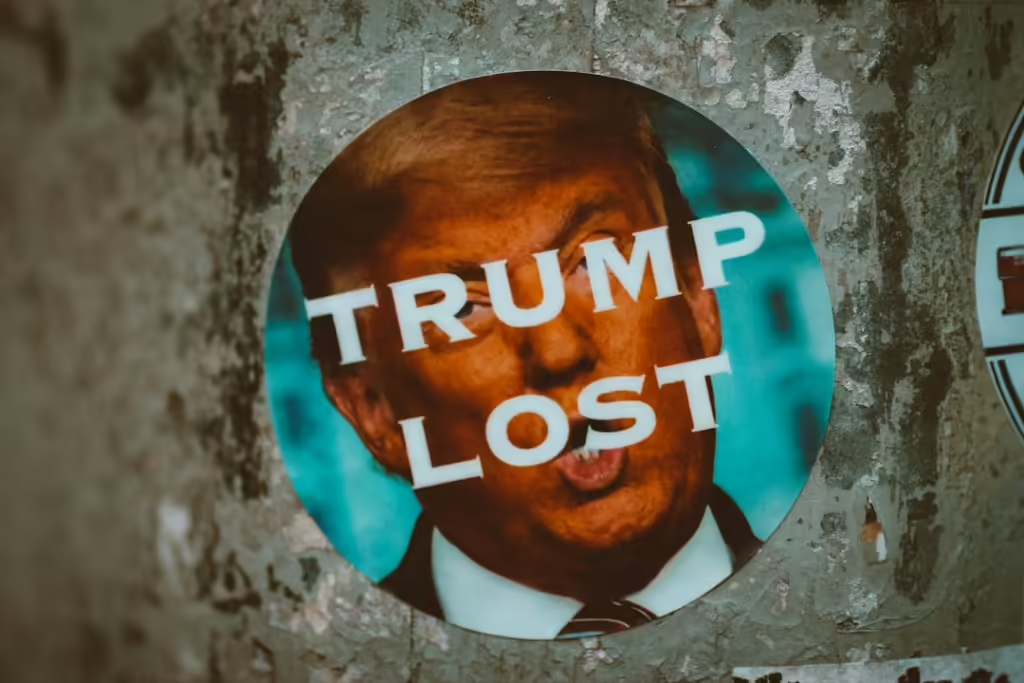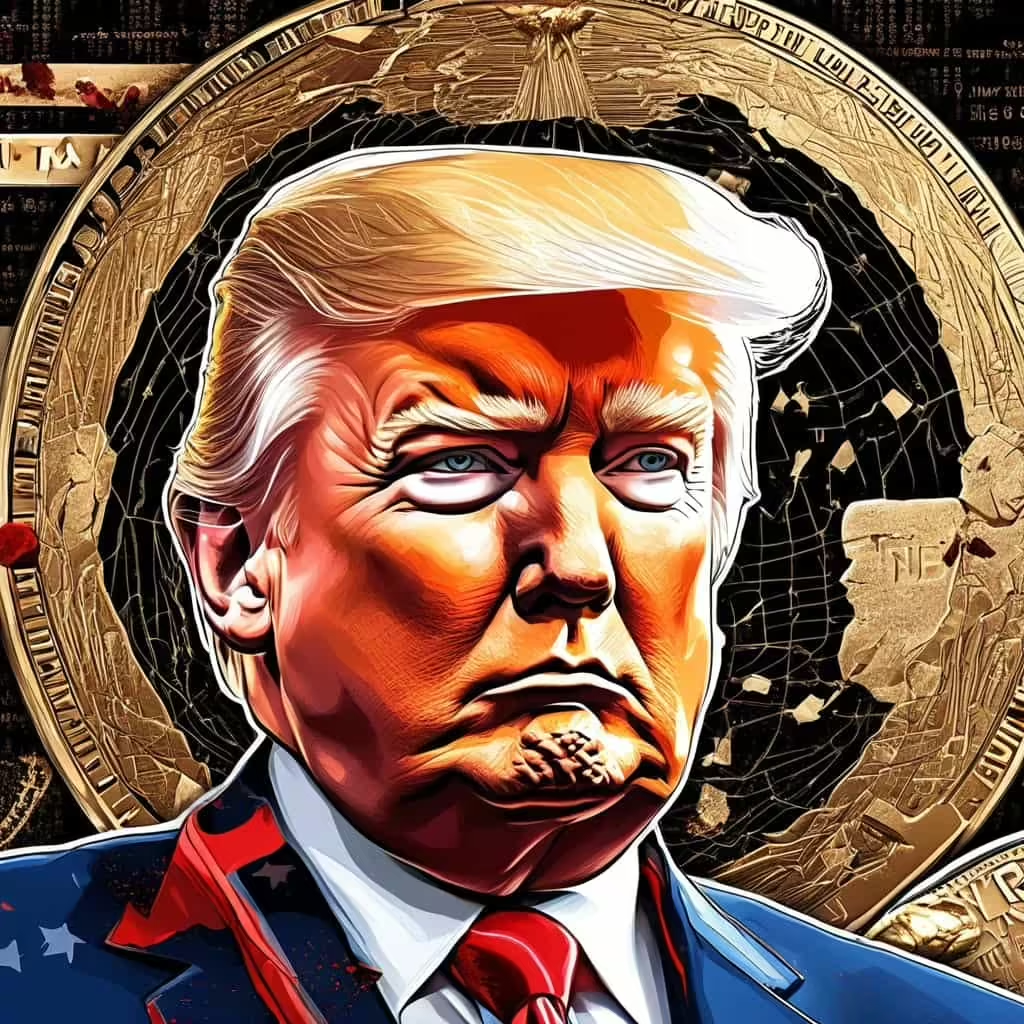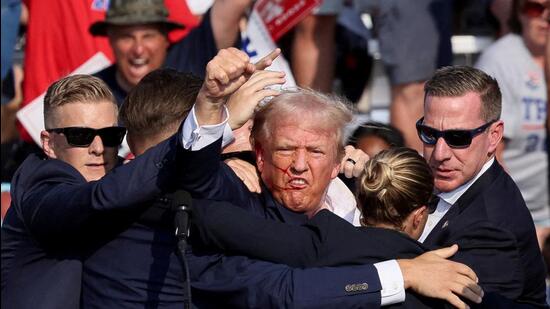The recent events surrounding the MAGA memecoin (TRUMP) have been nothing short of extraordinary. Following a reported assassination attempt on former United States President and current Republican presidential candidate Donald Trump, the price of this Trump-themed cryptocurrency saw a meteoric surge, soaring by over 50% in a matter of minutes.
This remarkable turn of events has not only captivated the attention of the crypto community but also raised questions about the intricate relationship between politics, public sentiment, and the speculative nature of digital currencies. As we delve deeper into this intriguing saga, we’ll explore the factors that contributed to the MAGA’s remarkable price spike, the broader implications for the cryptocurrency industry, and the evolving dynamics between Trump, meme coins, and the 2024 US Presidential Election.
The Trump Assassination Attempt and the MAGA Memecoin’s Explosive Reaction

On July 13, 2024, former President Donald Trump was delivering a campaign rally speech in Butler, Pennsylvania, when the unthinkable happened. Shots rang out from the crowd, prompting Trump to clutch his bleeding ear and drop to the ground as his Secret Service detail rushed to protect him and get him medical treatment. In the aftermath of this attempted Trump assassination attempt, the price of the largest Trump-themed memecoin, MAGA (TRUMP) token, experienced a staggering surge.
According to data from DexScreener, the MAGA (TRUMP) token spiked rapidly from a price of $6.31 to $10.36 immediately following the news of the assassination attempt. This represented a remarkable increase of over 52% in the token’s value, with its total market capitalization skyrocketing from $293 million to $469 million in less than 45 minutes.
The ripple effects of this incident were not limited to the MAGA (TRUMP) memecoin. Other Trump-themed digital assets, such as the Solana blockchain-based Tremp (TREMP) and the MAGA Hat (MAGA) tokens, also experienced significant price surges in the aftermath of the attempted attack on the former president. These donald trump meme coins and donald trump nft collectibles saw renewed interest from the crypto community.
Related Read: Trump Expected to Attend Bitcoin 2024 Convention in Nashville
Predicting the Political Landscape: Polymarket’s Shifting Odds
The impact of the assassination attempt was not confined to the crypto markets alone. It also had immediate consequences in the realm of political prediction markets, particularly on the Ethereum-based platform Polymarket.
Immediately following the news of the incident, speculators on Polymarket were quick to place their bets, and the results were striking. Trump’s odds of clinching a victory in the upcoming 2024 presidential election jumped from 60% to 68%, while President Joe Biden’s predicted odds of reelection fell from 30% to a mere 15%.
This dramatic shift in the prediction market’s outlook solidified Trump’s position as the clear favorite, with his overall election odds now standing at 70%. In contrast, Biden’s chances dwindled to 15%, and Vice President Kamala Harris trailed behind with only a 9% probability of victory according to the latest PolitiFi data.
The Evolving Relationship Between Trump and Cryptocurrencies

The MAGA (TRUMP) memecoin’s price surge following the assassination attempt is particularly intriguing given Trump’s complex and often-shifting crypto stance. In the past, the former president had been a vocal critic of Bitcoin, going as far as to call it “a scam.” However, his position on digital assets has undergone a significant transformation in recent months.
On June 14, 2022, Trump declared that he would bring an end to the Biden administration’s “war on crypto” if elected president in 2024. This marked a clear departure from his previous stance and signaled a growing recognition of the importance of cryptocurrencies in the political landscape.
Trump’s newfound appreciation for the crypto industry seems to be driven, at least in part, by the increasing influence of digital assets among his supporters. A survey conducted by the Harris Poll revealed that one in three registered voters in the US consider a candidate’s position on cryptocurrencies before making their voting decision. Furthermore, a recent study by leading crypto venture capital firm Paradigm found that 48% of crypto owners plan to vote for Trump in the 2024 election, compared to only 39% who intend to support President Biden.
Related Read: Trump Vows to End Biden’s “War on Crypto” and Secure America’s Bitcoin Future
The Crypto Community’s Embrace of Trump
The MAGA (TRUMP) memecoin’s price surge following the assassination attempt underscores the growing influence of the crypto community within the broader political landscape. As Trump’s stance on digital assets has softened, the crypto-savvy segment of his supporter base appears to have rallied behind him, perceiving his potential presidency as a favorable outcome for the industry.
This dynamic is further reflected in a recent report from Coinbase, which suggests that California voters who own cryptocurrencies are expected to have a significant impact on the 2024 elections. The report highlights the crypto community’s growing political clout and its potential to sway the outcome of crucial electoral battles.
The Ethical Considerations Surrounding Crypto and Politics
The MAGA (TRUMP) memecoin’s price surge in the wake of the assassination attempt raises important ethical questions about the interplay between cryptocurrencies and the political process. While the crypto market’s reaction may be driven by speculative fervor, it also highlights the potential for digital assets to be used as a tool for political influence and manipulation.
As the crypto industry continues to evolve and become more deeply integrated into the fabric of society, it is crucial that policymakers, industry leaders, and the broader public engage in a thoughtful and nuanced discussion about the ethical implications of this emerging landscape. This includes addressing concerns around transparency, accountability, and the potential for cryptocurrencies to be exploited for nefarious political purposes.
The Broader Implications for the Crypto Market
The MAGA (TRUMP) memecoin’s price surge is not just a standalone event; it is part of a larger narrative that underscores the complex and often unpredictable nature of the crypto market. While the immediate reaction to the assassination attempt may have been driven by speculative frenzy around donald trump coin and president coin offerings, it also serves as a reminder of the inherent volatility that characterizes the digital asset ecosystem.
As the crypto industry continues to evolve and gain mainstream adoption, the interplay between political events, public sentiment, and market dynamics will only become more pronounced. This raises important questions about the long-term stability and resilience of the crypto market, as well as the need for robust regulatory frameworks to ensure the integrity and transparency of these digital ecosystems.
The Ongoing Debate Over Crypto Regulation
The MAGA memecoin’s (TRUMP) price surge has also reignited the ongoing debate surrounding the regulation of cryptocurrencies. While some proponents argue that the decentralized nature of digital assets should be protected from government interference, others contend that stricter oversight is necessary to mitigate the risks of market manipulation, fraud, and other illicit activities.
As the 2024 presidential election approaches, the issue of crypto regulation is likely to become a hotly contested topic on the campaign trail. Trump’s pledge to end the Biden administration’s “war on crypto” may resonate with his crypto-savvy supporters, but it will also face scrutiny from those who prioritize consumer protection and financial stability.
The Potential Impact on the 2024 Election
The MAGA memecoin’s (TRUMP) price surge in the wake of the assassination attempt has far-reaching implications for the 2024 presidential election. The dramatic shift in Polymarket’s prediction odds, which now favor Trump, underscores the growing influence of the crypto community within the broader political landscape.
As the 2024 election cycle unfolds, it will be crucial to closely monitor the interplay between cryptocurrencies, public sentiment, and the political process. The crypto community’s embrace of Trump, coupled with the former president’s evolving stance on digital assets, could prove to be a decisive factor in shaping the electoral outcome.
The Challenges of Regulating Crypto in a Political Context
The regulation of cryptocurrencies has always been a complex and multifaceted issue, but the MAGA (TRUMP) memecoin’s price surge in the wake of the assassination attempt adds an additional layer of complexity to this debate. Policymakers and regulators must now grapple with the challenge of striking a delicate balance between fostering innovation and safeguarding the integrity of the financial system, all while navigating the politically charged landscape of digital assets.
As the 2024 election approaches, the crypto community’s growing political clout will undoubtedly influence the regulatory landscape. Candidates’ positions on crypto regulation will be closely scrutinized, and the outcome of the election could have significant implications for the future of digital assets in the United States.
The Evolving Landscape of Crypto and Politics
The MAGA memecoin’s (TRUMP) price surge in the wake of the assassination attempt is a stark reminder of the rapidly evolving relationship between cryptocurrencies and the political landscape. As digital assets continue to gain mainstream adoption and influence, the interplay between these two realms will only become more pronounced and complex.
In the years ahead, the crypto community’s political clout, the regulatory landscape, and the role of digital assets in shaping electoral outcomes will all be crucial factors to monitor. By staying informed, engaging in constructive dialogue, and prioritizing transparency and accountability, we can work towards a future where the promise of cryptocurrencies is realized in a manner that strengthens, rather than undermines, the foundations of our democratic institutions.













